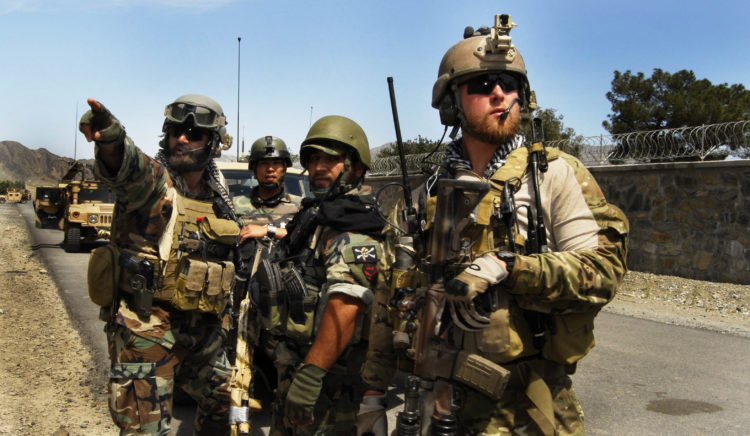We have been getting a lot of mail and tweets here at SpecialOperations.com and as we pointed out in our earlier post a day ago, many have questions about the Selection courses and what can be expected when candidates begin their quest to become part of the Special Operations fraternity and become part of the Regiment.
And included in many of the queries we get are the legitimate questions as to what life is like in a Special Operations unit with most centering around the Direct Action (DA) side of the house. Don’t get me wrong here, Special Forces guys are very good at and all love to do DA operations but where they’re best at and where they stand above all others is in their ability to teach.
While DA missions are linear and much easier to judge the success or failure at, the true art of a Special Forces A-team lies in their ability to teach an allied soldier or guerrilla fighter to do those same Direct Action missions. Setting up intelligence early warning networks or leading a dedicated guerrilla force to success in the Unconventional Warfare (UW) environment isn’t as tangible, nor as sexy. There won’t be those “must-see” YouTube moments in most of those type of missions but they are essential for successful mission accomplishment.
Being able to reach and teach a foreigner in his own language and teach them is a tremendous boost to building rapport, earning the trust, and creating a successful joint team with our foreign allies. That’s where the cultural awareness and language training become so important.
As an example, Special Forces weapons sergeants (light and heavy) can break down and assemble any weapon that you’ll find on the modern battlefield as well as teach light infantry tactics. But what makes them so valuable is that they can immediately pick up a weapon of an allied host nation’s soldier and teach him, in his own language, how to zero the weapon, qualify with it, fix his flaws and then teach the same tactics to make the allied soldiers more effective.
Some cultures and languages are much harder to learn the nuances of than others. Many of the customs and dialects of the Middle East are extremely difficult to master and are very different from what operators may find in South America, where Spanish is mainly spoken and their culture, more closely aligned to our own. But even there, problems in teaching would always crop up.
While teaching some soldiers from the Andean Ridge countries in counter-narcotics training, we learned that many of the local soldiers from the mountains, speak Spanish as a second language and had issues both reading and writing it. Many spoke their native Indian tongue first, Quechua is the language of the Incas and still spoken by around 8 million people. Amayar and many offshoots of it are still spoken by 2 million people in the region.
A few questions we received asked about the “high speed” training done with our foreign allies. In reality, much of what Special Operations Forces teach are the basics. And that is why they’re so successful. The operators know and train on the basics backward and forward. The basic fundamentals are the keystone to everything else that will follow.
And it all begins in the training. If the instructors for the Special Operations Forces in their respective qualifications courses aren’t doing a great job of doing their jobs, then they won’t be putting out high-quality operators. The instructors are the first people you will see upon arriving at a Special Operations training course.
The process of learning to teach and doing it effectively begins at the home station. A few years ago, the John F. Kennedy Special Warfare School, (JFKSWC) revamped the old Instructor Training Course (ITC) and created the Special Operations Instructor Course (SOIC).
There was an old saying in Special Forces that stated, “Those who can, do (operate), those who can’t, teach and those who can do neither administrate.” That’s not really true, but it used to be a way to rib the guys who were levied to teach at the schools of the JFKSWC, many of whom didn’t want to go there because they preferred to stay operational.
But ask any operator today and they’ll tell you who the best instructors of their courses were, not only did they teach what was in the curriculum but went above and beyond what was required and taught them the things that they’d need to know in the real world once graduation was behind them. And conversely, most will remember the instructors who weren’t so great either. Nobody wants to be remembered as such and thankfully few of them are.
I remember my primary instructor at Robin Sage, he knew his subject matter extremely well as well as his operational area and we learned a ton while out doing the exercise. He would always answer questions framed around a question of his own and said frequently that “this is a thinking man’s game.” At the time, we didn’t completely get it but he was right.
So, for the young candidates out there, don’t just give lip service to the teaching side of Special Operations. Embrace it, learn it and become the best at it, because that is the life blood of what is done when working with our overseas allies.
Photo Courtesy of DOD










COMMENTS